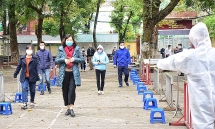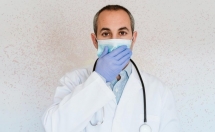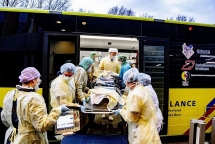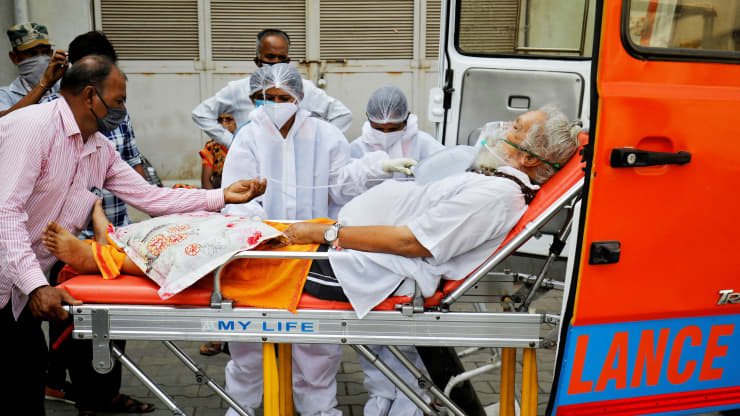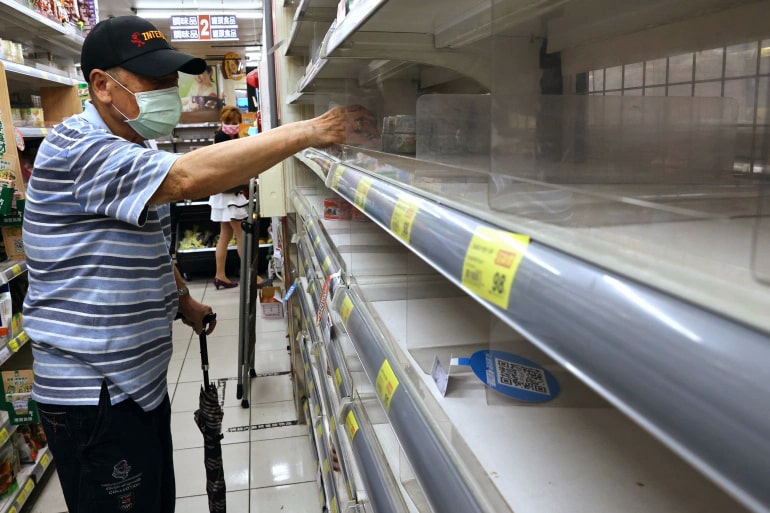China tightens coronavirus test kit exports after accuracy questioned
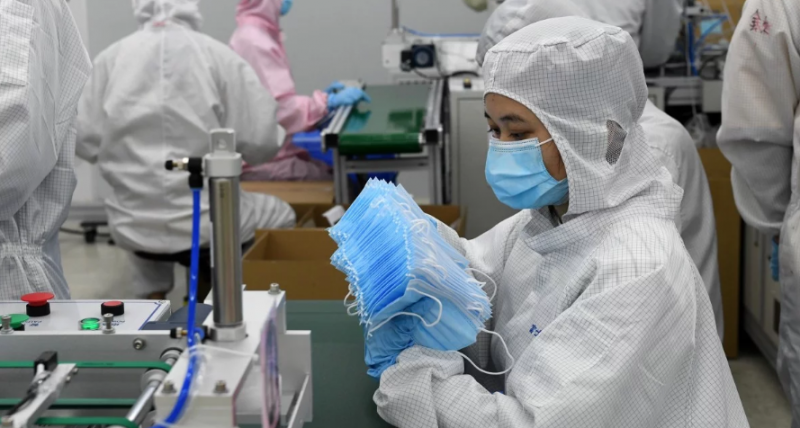 |
| Beijing has tightened its rules on the export of medical supplies amid criticism from some European buyers. Photo: Xinhua |
Chinese exporters of coronavirus tests must now obtain a registration certificate from the National Medical Products Administration (NMPA) in order to be cleared by China’s customs, the NMPA said in a statement late on Tuesday (Mar 31).
The move comes after China was hit with a number of complaints from buyers in Europe about the quality and accuracy of tests kits and other products.
The new rule applies to all companies seeking to export test kits, face masks, protective clothing, ventilators and infrared thermometers, according to a joint statement issued on Tuesday by the Ministry of Commerce, General Administration of Customs and the National Medical Products Administration.
According to Reuters, Beijing had been encouraging Chinese firms to export test kits and other supplies to help battle the coronavirus pandemic, leading to a surge of companies offering kits to countries desperate to get a handle on the fast-moving and highly contagious disease.
Some Chinese test kit makers had been taking advantage of easier European Union regulations to get their products into the market before they were approved at home.
Previously, Chinese exporters were required only to have CE certification to indicate their goods conformed to the health and safety standards required for sale within the European Economic Area.
However, as of last week, of the 102 Chinese companies with CE accreditation, just 21 were licensed to sell their products within China.
In March, Lei Chaozi, an official with the Ministry of Education, said China-made testing kits had already been supplied to 11 countries, including the UK, Italy and the Netherlands.
But the accuracy of some Chinese tests marketed overseas without Chinese approval have been questioned by European health authorities.
Spain withdrew a batch of rapid tests manufactured by Chinese diagnostics firm Shenzhen Bioeasy Biotechnology after the product was found to have low sensitivity, which means they were unable to detect infection sufficiently.
Bioeasy said in a statement last week the inaccurate readings could be because samples were not collected and processed correctly. Bioeasy said it failed to adequately communicate with clients on how to use the test.
The Chinese embassy in Madrid, meanwhile, said that the kits provided by Bioeasy were not part of a package of supplies donated by Beijing, and that the company had not been licensed by the National Medical Products Administration.
China is also helping to investigate how substandard face masks were supplied to The Netherlands, after officials there recalled more than 600,000 of them that they said were not suitable for use by medical workers, reported the South China Morning Post newspaper.
Separately, a spokeswoman from China’s foreign ministry spokeswoman said last week that Slovak government officials had questioned the reliability of rapid tests purchased from China.
The preliminary conclusion from the Chinese consulate in Slovakia was that the inaccuracies were the result of medical workers using the kit incorrectly, the spokeswoman said.
The Slovak government did not immediately respond to requests for comment, Reuters said.
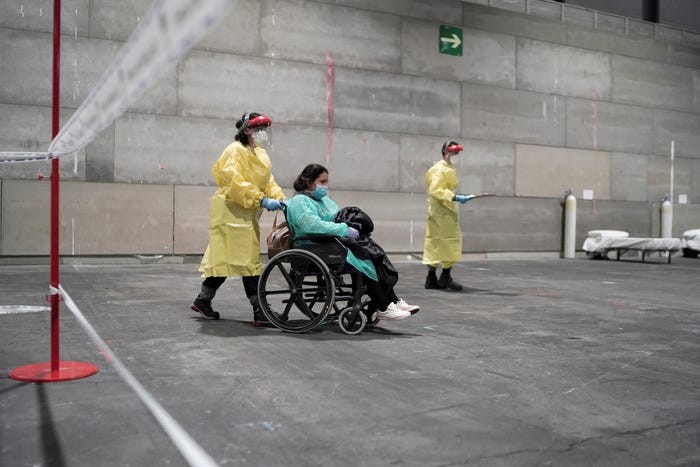 |
| A coronavirus patient at a military hospital in Madrid on March 21. Comunidad de Madrid/Handout via Reuters |
Antigen tests
Bioeasy's rapid tests, as well as the tests questioned by Slovak officials, are antigen tests, a method that targets the virus' protein to detect infection and can deliver results more quickly than the alternative nucleic acid method.
But antigen tests require higher level of virus load and therefore could fail to diagnose people correctly when the samples only contain small amount of virus, Dr. Chen Guangjie, an immunology professor at Shanghai Jiaotong University, told Reuters.
New coronavirus test makers in China are entering the European market during a transition between two regulatory systems.
A business development manager for a biotech company in Beijing, who asked not to be identified, told SCMP that another problem facing manufacturers was that applying for a domestic licence could take years, even for those that already had CE accreditation.
“The formal approval process takes one to three years,” she said.
Current regulations used by several Chinese companies allow manufacturers to obtain CE Mark after submitting a dossier of documents without compulsory verification by authorized third-parties.
Now, China's tightened scrutiny is interrupting test manufacturers' overseas expansion plans.
Jam Chan, marketing general manager at Osmunda, a service firm that advises Chinese medical product firms on getting overseas approvals, said many recently developed tests in China haven't gone through strict clinical trials, which means the self-declared accuracy rate printed on the products is not properly validated.
"Better not exporting products than offering inaccurate products that can lead to fake results," said Chan. "The quality of products that have been through domestic review before being exported is at least guaranteed to some extent."
 | COVID-19 pandemic could kill 20 million people worldwide in 2020 The COVID-19 pandemic could kill as many as 20 million people worldwide this year even if the intensive social distancing measures currently are being implemented ... |
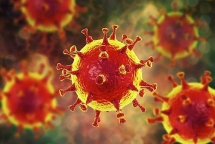 | COVID-19 and dietary supplements: What you might want to know Worried people are scrambling to buy wellness products they think will protect against COVID-19. Some may actually do harm, The New York Times warned, citing ... |
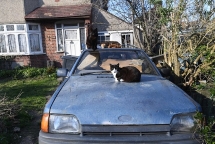 | A cat in Belgium infected with coronavirus A house cat has been infected with the novel coronavirus in Belgium after being contaminated by its owner, Belgian health authorities said Friday (Mar 27). |
Recommended
 World
World
India reports 9 Pakistani Aircraft Destroyed In Operation Sindoor Strikes
 World
World
Thailand Positions Itself As a Global Wellness Destination
 World
World
Indonesia Accelerates Procedures to Join OECD
 World
World
South Korea elects Lee Jae-myung president
 World
World
22nd Shangri-La Dialogue: Japan, Philippines boost defence cooperation
 World
World
Pakistan NCRC report explores emerging child rights issues
 World
World
"India has right to defend herself against terror," says German Foreign Minister, endorses Op Sindoor
 World
World

